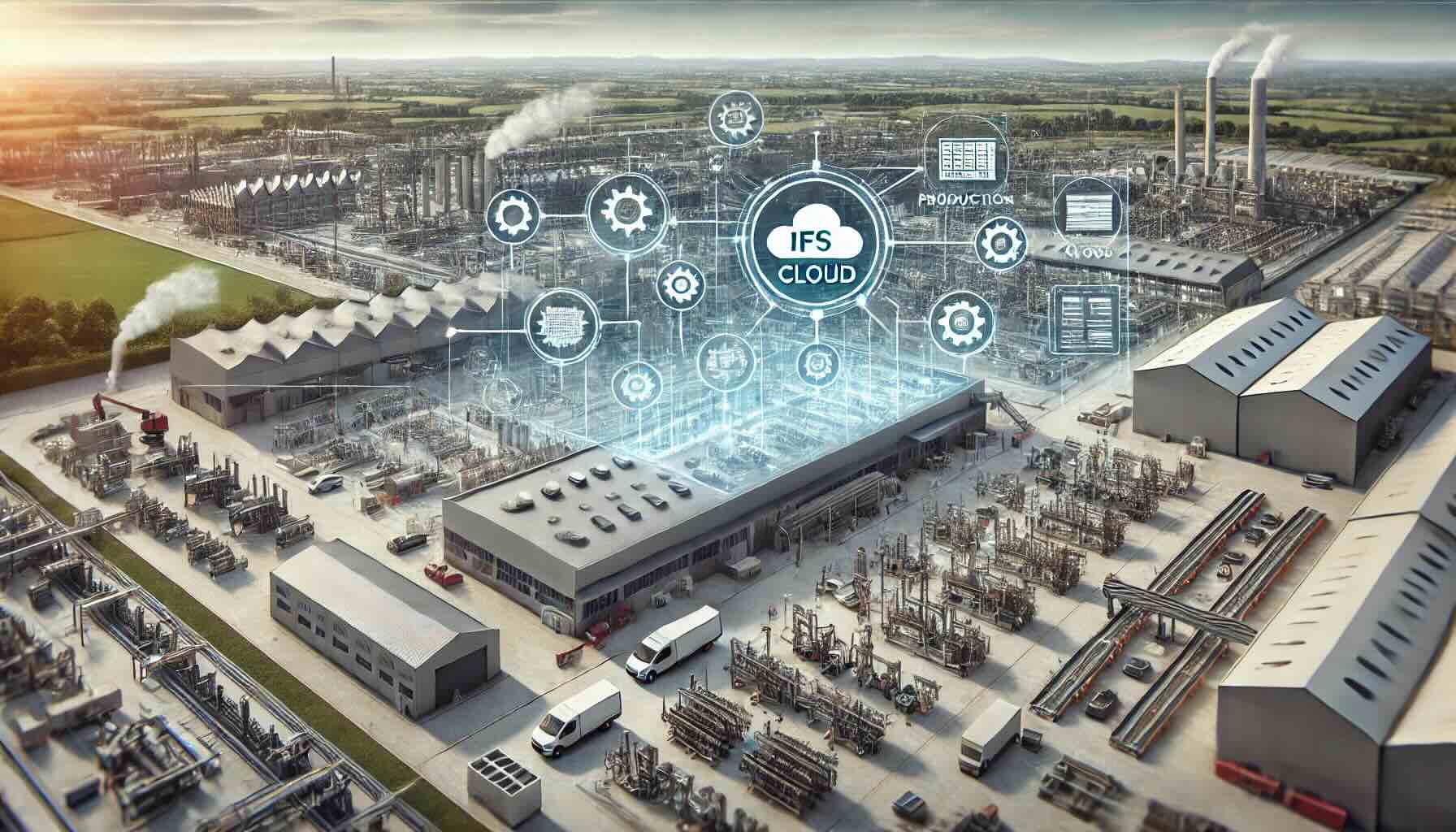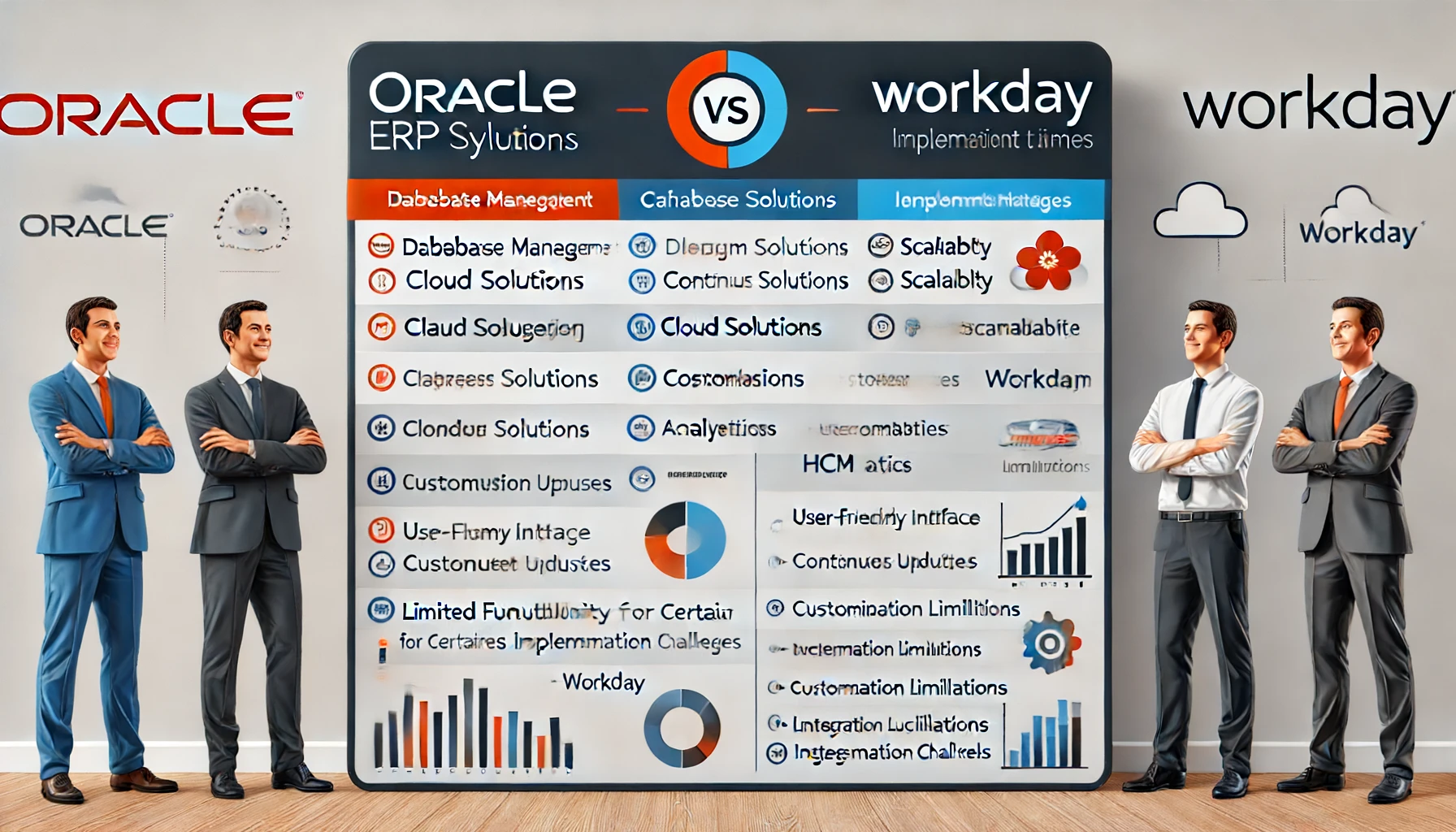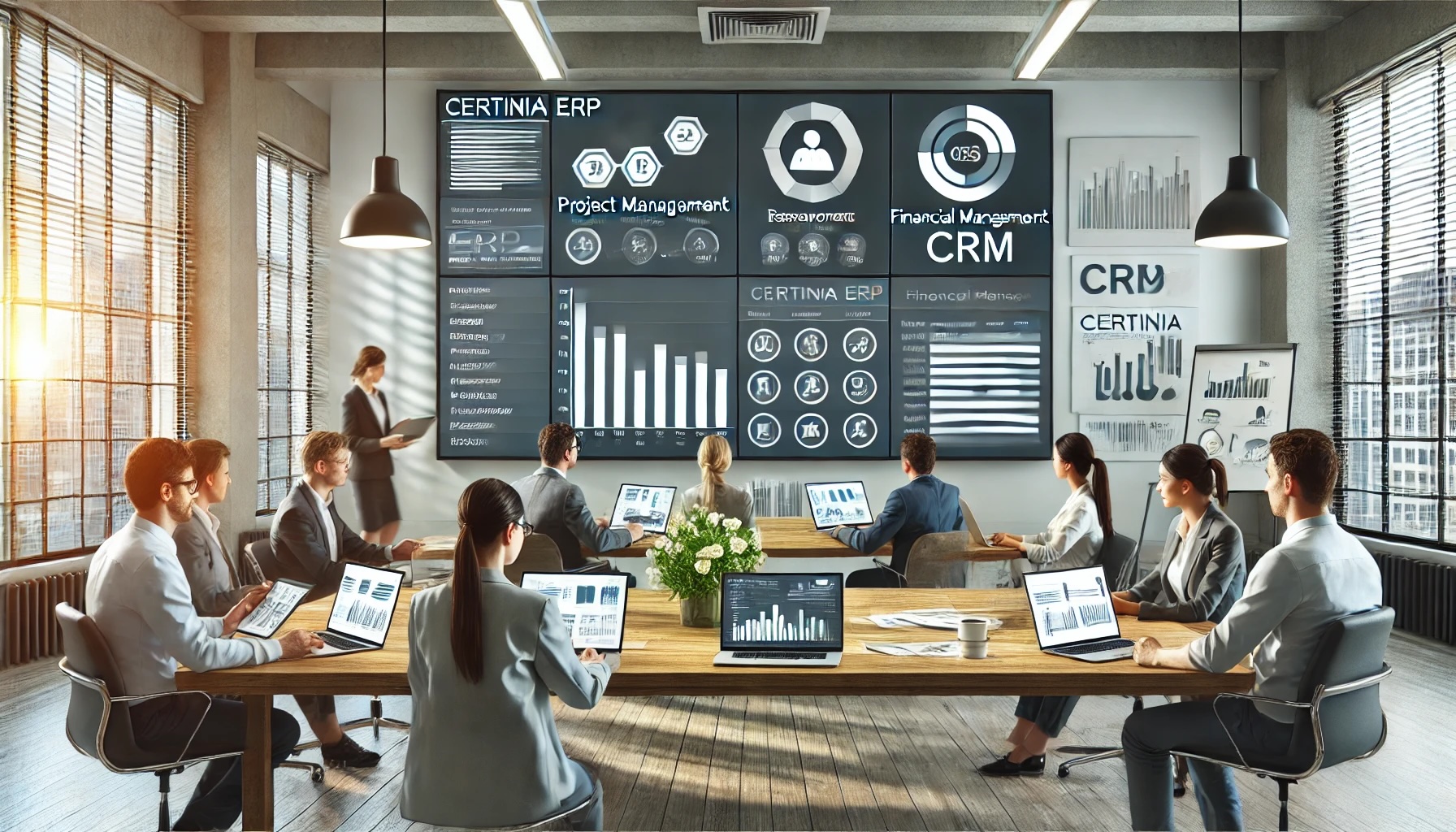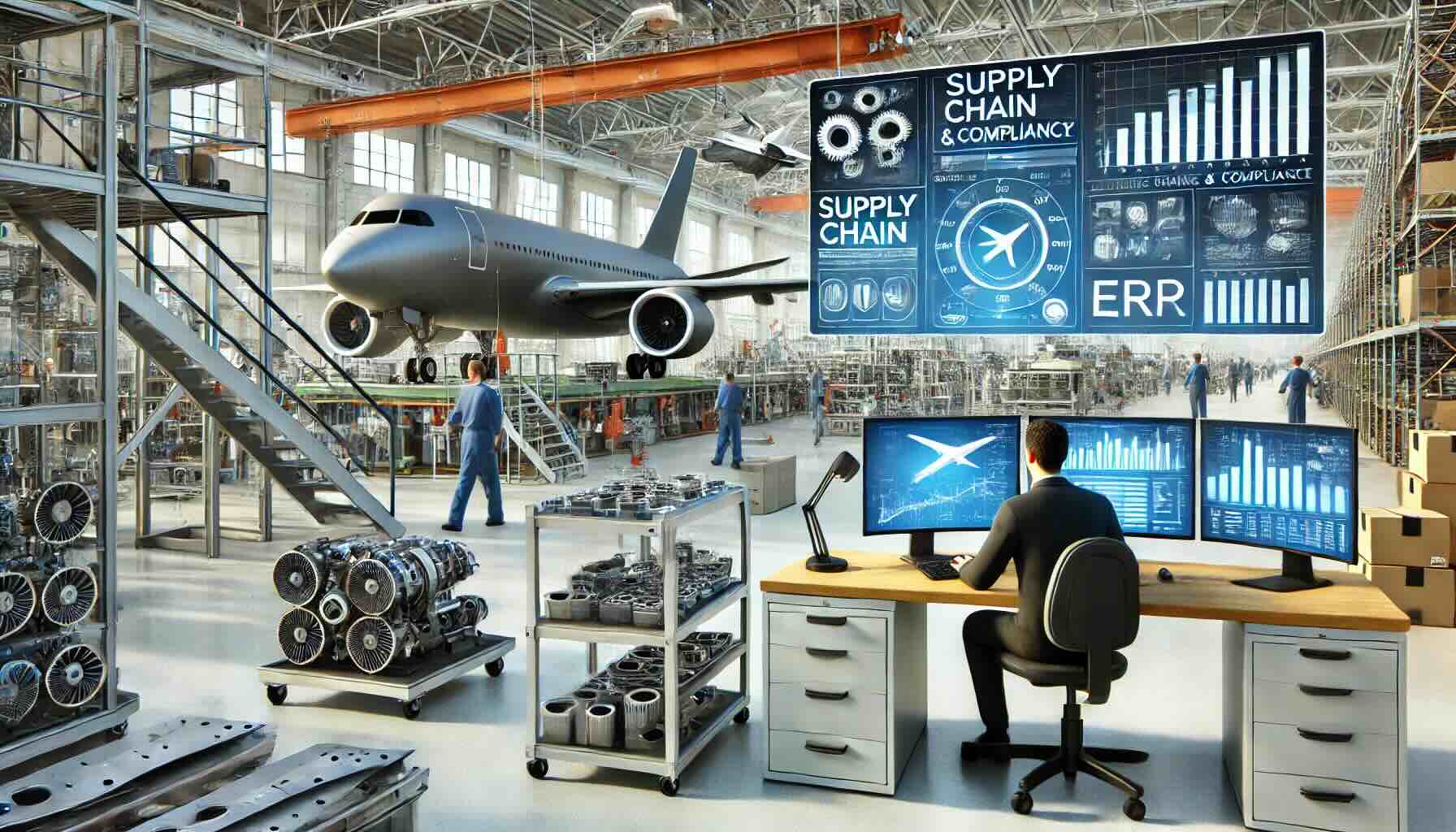Top 20 ERP Solutions: Features, Benefits & Industry Fit
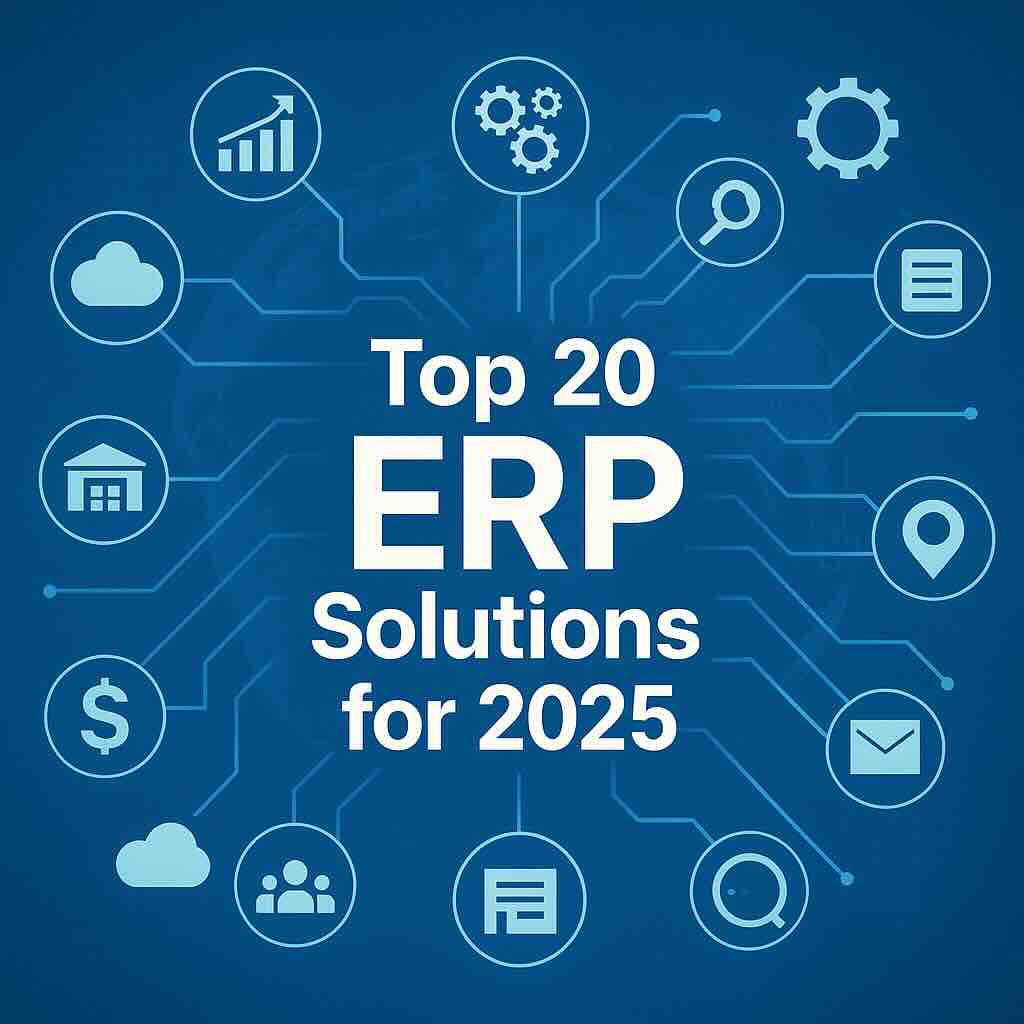
Running a business in 2025 means navigating constant change, tighter margins, and rising customer expectations. An Enterprise Resource Planning (ERP) system isn’t just back-office software, it’s the digital backbone that connects finance, operations, supply chain, sales, HR, and more. The right ERP empowers faster decisions, seamless collaboration, and the agility to pivot when markets shift.
To help you choose, we’ve compiled the Top 20 ERP solutions for 2025, covering key features, benefits, and the industries they serve best.
1. SAP S/4HANA
A next-generation ERP suite built on in-memory computing for lightning-fast analytics and automation.
Key Features:
-
In-Memory Performance: Real-time processing of massive datasets.
-
Comprehensive Modules: Finance, supply chain, CRM, manufacturing, and more.
-
AI & Machine Learning: Automates repetitive tasks and optimizes processes.
To find out more about SAP S/4HANA, click this link.
2. Oracle ERP Cloud
A robust, enterprise-grade cloud ERP that scales from mid-sized firms to global enterprises.
Key Features:
-
Advanced Analytics: Real-time dashboards and predictive insights.
-
Scalability: Adapts to business growth and complexity.
-
Integrated Apps: Financials, procurement, project management, and more.
To find out more about Oracle, click this link.
3. Microsoft Dynamics 365
Combines ERP and CRM into one unified platform, deeply integrated with Microsoft 365 tools.
Key Features:
-
Unified Platform: Streamlines operations across departments.
-
AI Insights: Predictive analytics for smarter decisions.
-
Modular Design: Choose and pay for only the capabilities you need.
To find out more about Microsoft, click this link.
4. Infor CloudSuite
Cloud-based ERP tailored to industries like manufacturing, healthcare, and retail.
Key Features:
-
Industry-Specific: Prebuilt solutions for verticals.
-
Flexible Cloud Deployment: Lower IT overhead, scalable performance.
-
Operational Analytics: Deep insights into efficiency and costs.
To find out more about Infor, click this link.
5. NetSuite ERP
A popular cloud ERP for growing businesses, offering a wide suite of business apps.
Key Features:
-
Financial Management: Strong tools for accounting, budgeting, and planning.
-
CRM Integration: Improved customer tracking and service.
-
E-commerce: Full support for online sales and inventory.
To find out more about NetSuite, click this link.
6. Epicor ERP
Engineered for manufacturers and distributors needing operational control.
Key Features:
-
Production Management: Tools to plan and monitor manufacturing.
-
Supply Chain: Optimize logistics and distribution.
-
Financials: Accurate reporting and compliance tools.
To find out more about Epicor, click this link.
7. Workday
Focused on human capital and financial management with a user-friendly approach.
Key Features:
-
HCM Excellence: Workforce planning and HR management.
-
Financial Planning: Integrated analytics and reporting.
-
Ease of Use: Intuitive, mobile-friendly interface.
To find out more about Workday, click this link.
8. IFS Cloud
Ideal for asset-intensive industries like aerospace, defense, and energy.
Key Features:
-
Asset Management: Track and maintain critical equipment.
-
Project Management: Plan and deliver complex projects.
-
Supply Chain: Full visibility across procurement and distribution.
To find out more about IFS, click this link.
9. Acumatica
Flexible cloud ERP for small to mid-sized businesses.
Key Features:
-
Financial Suite: Accounting, budgeting, and reporting.
-
CRM Integration: Better customer relationship tracking.
-
Project Accounting: Detailed cost tracking for projects.
To find out more about Acumatica, click this link.
10. Odoo
An open-source ERP with a modular design for maximum customization.
Key Features:
-
Custom Modules: Build only what you need.
-
Inventory Management: Warehouse optimization tools.
-
Accounting: Comprehensive financial reporting.
To find out more about Odoo, click this link.
11. Sage X3
ERP for medium-to-large enterprises with strong distribution and manufacturing support.
Key Features:
-
Finance: Advanced budgeting and forecasting tools.
-
Distribution: Streamlined logistics and inventory control.
-
Manufacturing: Production planning and quality control.
To find out more about Sage, click this link.
12. QAD Adaptive ERP
Manufacturing-focused ERP built for global supply chains.
Key Features:
-
SCM Excellence: Optimize sourcing, production, and delivery.
-
Production Management: Real-time shop floor insights.
-
Finance: Compliance-ready financial tools.
To find out more about QAD, click this link.
13. SYSPRO
ERP for manufacturing and distribution with strong inventory control.
Key Features:
-
Manufacturing Tools: Improve efficiency on the production line.
-
Inventory Control: Minimize stock-outs and overstock.
-
Financial Management: Reliable, accurate reporting.
To find out more about SYSPRO, click this link.
14. Plex Smart Manufacturing Platform
A cloud-native ERP for manufacturers focused on real-time operations.
Key Features:
-
Production Control: Monitor output and quality in real time.
-
SCM: End-to-end supply chain visibility.
-
Quality Assurance: Compliance and product standards management.
To find out more about Plex, click this link.
15. Priority ERP
A versatile ERP used across manufacturing, retail, and healthcare.
Key Features:
-
Finance: Accounting and reporting tools.
-
CRM: Integrated customer service and sales tracking.
-
Supply Chain: Optimize procurement and logistics.
To find out more about Priority, click this link.
16. Deltek
Specialized ERP for project-based businesses like construction and consulting.
Key Features:
-
Project Management: Control timelines, budgets, and resources.
-
Financial Planning: Scenario modeling and forecasting.
-
Resource Planning: Optimize workforce allocation.
To find out more about Deltek, click this link.
17. Ramco ERP
Cloud ERP with strong automation and AI capabilities.
Key Features:
-
Finance: Budgeting, forecasting, and compliance tools.
-
HR: Workforce and payroll management.
-
SCM: Streamlined logistics and procurement.
To find out more about Ramco, click this link.
18. ERPNext
An open-source ERP for small and mid-sized companies.
Key Features:
-
Accounting: Full-featured finance tools.
-
Inventory: Real-time stock tracking.
-
Project Management: Task tracking and collaboration.
To find out more about ERPNext, click this link.
19. Infor M3
ERP for manufacturers, distributors, and equipment providers.
Key Features:
-
Supply Chain: Manage global logistics with ease.
-
Production: Plan and monitor manufacturing.
-
Finance: Detailed reporting and compliance support.
To find out more about Infor, click this link.
20. Unit4 ERP
Built for service-based sectors like education, non-profits, and public services.
Key Features:
-
Financial Management: Budget control and forecasting.
-
HR Tools: Talent and payroll management.
-
Project Management: Track deliverables and resources.
To find out more about Unit4, click this link.
Choosing the Best ERP for 2025
The right ERP depends on your industry, company size, and growth goals. Whether you need a manufacturing powerhouse, a service-focused solution, or a highly customizable open-source platform, this Top 20 ERP list offers a strong starting point.
Implementing the right ERP system could be the game-changer your business needs. With our AI-powered Compare ERP tool, you can quickly explore and compare solutions tailored to your unique requirements. Our advanced engine analyzes millions of data points across 100+ ERP systems, delivering your top three picks based on your priorities. Best of all, it’s completely free. Take the first step toward streamlining operations and boosting productivity, start comparing today!


